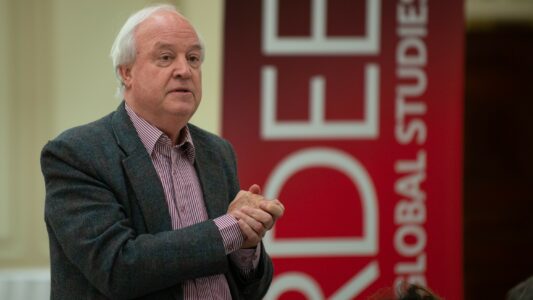Jorge Heine Analyzes the Future of the Organization of American States

Ambassador Jorge Heine, Research Professor at Boston University’s Frederick S. Pardee School of Global Studies, explores the significance of the upcoming election for the Secretary-General of the Organization of American States (OAS) in a recent column published in Project Syndicate. At a time of geopolitical uncertainty and shifting inter-American relations, Heine argues that this election presents a critical opportunity to restore the OAS’s credibility and strengthen its role in addressing key regional challenges.
Founded in 1948, the OAS is one of the oldest Pan-American institutions, serving as a platform for diplomatic engagement across the Western Hemisphere. However, in recent years, the organization has faced mounting criticism over its handling of political crises, including its controversial role in the 2019 Bolivian election and its limited response to the ongoing humanitarian and political situation in Haiti. With Latin America experiencing growing tensions with the United States—ranging from trade policies to migration enforcement—Heine underscores the need for leadership that can navigate these complexities while reinforcing multilateral cooperation.
Heine highlights Albert Ramdin, Suriname’s Foreign Minister, as a strong candidate for the role of Secretary-General. With over a decade of experience as Assistant Secretary-General of the OAS, Ramdin has built a reputation as a consensus-builder and advocate for regional diplomacy. His candidacy has received broad support from Caribbean and Latin American nations, reflecting a push for greater representation from the Caribbean bloc within the organization.
The article also addresses the broader geopolitical narratives surrounding the election, particularly efforts to frame the race as a contest between pro- and anti-China candidates. Heine argues that such interpretations misrepresent the OAS’s mission and the priorities of its member states, emphasizing that the focus should remain on selecting a leader who can rebuild the institution’s legitimacy, restore internal morale, and advance a cooperative hemispheric agenda.
As the OAS prepares for this pivotal leadership transition, Heine’s analysis sheds light on what is at stake for the organization and the broader landscape of inter-American relations.
Read the full column here